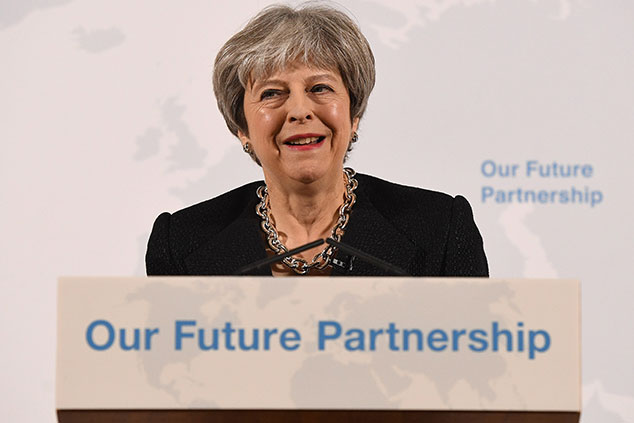
Two years ago, the government sent a leaflet to every UK household putting the case for Britain remaining in the EU. While it ultimately failed to persuade people, Professor Jonathan Portes of King’s College London thinks that its core message – that leaving the EU is going to hurt the British economy – is still worth repeating.
Portes, a former Cabinet Office chief economist, has produced a report, in association with the think tank Global Future, Too High a Price: The Cost of Brexit – What the Public Think. In it, he argues that each of the four scenarios – EEA (Norway), Free Trade (Canada) Agreement, WTO terms and May’s bespoke deal – would each incur significant costs.
Portes admits that his estimates of the cost of the Norway, Canada and WTO models are “built on previous pre-referendum work by the Treasury”, which looked at the annual costs once industry has fully adjusted. However, he and his team have also modelled a bespoke deal based around the red lines that Theresa May outlined in her Mansion House speech in March. This involves Britain leaving the single market and the customs union, but getting more than a simple free trade agreement. Such a deal would end up costing the UK economy £615m a week, less than the £1.25bn that a WTO Brexit would cost, but still a large amount.
The most damaging part of a bespoke deal is that it takes us out of the single market. The regulatory divergence between Britain and the EU and the ending of Britain’s automatic right to sell goods in the mainland would create “pervasive non-tariff barriers to trade”. In addition, there are the physical costs of leaving the customs union, which would be “one-off like a tax”. If Britain had to choose between staying in the single market and leaving the customs union (like Norway), and being in the customs union but not the single market (like Turkey), it should choose the former.
The losses outweigh the gains of any deal
The Norwegian arrangement may be the least worst of the major models, but it would still reduce growth by £215m a week. Being outside the customs union means that Norway has to have a hard border with Sweden (and increased checks at its ports). Even though this is “relatively well run” it still imposes costs on exporters. The problem would be even worse for Britain, says Portes, given that most of our trade takes place through sea ports such as Dover. Leaving the customs union would also make a “hard border” between Northern Ireland and the Republic of Ireland almost inevitable.
In any case, the gains from the increased freedom to agree free trade deals are very limited. The Treasury has estimated that the benefits of a free trade deal with the US “would only amount to 0.2% of GDP”, and would involve the UK “having to accept US product standards on everything from financial services to food, including the infamous chlorinated chicken”. Meanwhile, Portes thinks that it is “unrealistic” to get any significant agreements from either China or India. Indeed, the Indian government has said that “it would require Britain to adopt more liberal visa rules as a precondition for trade talks”, while both countries “have powerful protectionist lobbies”.
The most logical decision would be to stay in both the customs union and the single market, says Portes. But there are downsides to the EEA model. The most obvious of this is that we would have less influence compared to now. Although Norway “is listened to”, and our size would ensure that we had a bigger say, “there is no question that EEA countries do not have a vote”. Furthermore, we would have to accept free movement “in some form” though the EU might agree “some face-saving changes if we agreed the wider principle”. Even an EEA model would involve a lot of negotiation since “you can’t take a model completely off the rack”.
Still, the EEA model makes a lot more sense that what Theresa May is currently trying to achieve, and there is “definitely goodwill in Brussels to make such an arrangement a reality” provided we’re willing to make the first move.
The prime minister is a “fantasist” if she thinks that she can get equivalent access to the single market without offering any more than just mutual recognition of standards, says Portes. This means that, “at the moment anything is possible from no deal to an EEA type arrangement”. He also thinks that, if she is sensible, the PM might try and climb down over leaving the customs union, perhaps by trying to rebrand it as a “partnership”.